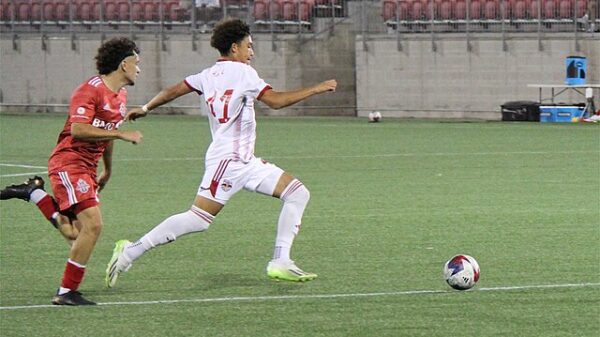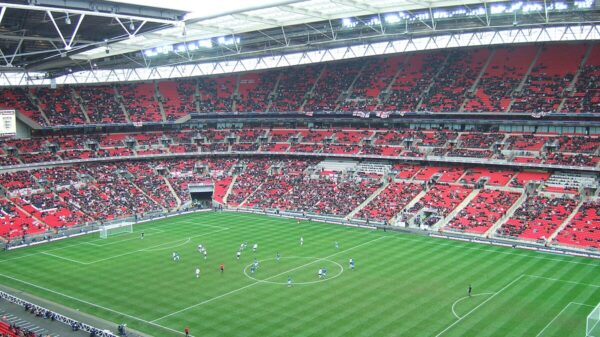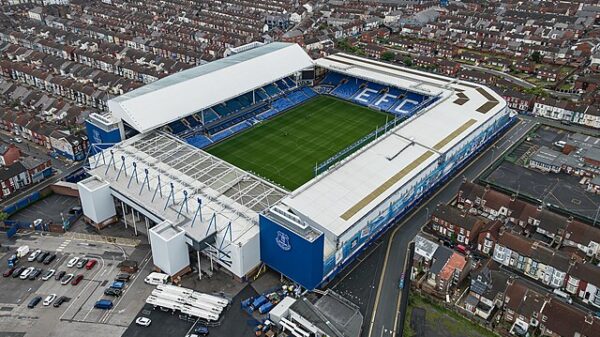Staff Writer Grace Holloway explores how an increasingly busy football schedule is creating physical pressures for players.
Being a Premier League or top league football player sounds like a dream life to many. With the average wages of a Premier League footballer being as high as over £3 million a year, what do they have to moan about?
Recently speculation has been rising over a possible strike among footballers, specifically started by Manchester City players. This initially struck controversy, due to the mass appeal and awe their job attracts. Within the last couple of years, strikes have only really occurred in Women’s football, focusing on equal pay and treatment. However, the players would not be striking over any pay or equality issues but instead over a long-term problem of fixture scheduling and its impact on injuries and player’s health. This issue has been building for years, but this season a new layout of matches has proven to be too tough for some players.
What are players really complaining about?
Champions League and other major clubs competing at the European level lead the discourse. This includes English Team Manchester City. Their star midfielder, Rodri, has been vocal in expressing his thoughts on the matter:
“If it keeps [going] this way, there will be a moment where we have no other option, but let’s see. It’s something that worries us because we are the ones who suffer.” Rodri Speaking at a press conference
For Manchester City, their complaints have been grounded in their participation in five leagues/ clubs before the start of next season. This includes The Premier League, Carabao and FA cups, as well as international club tournaments such as The Champions League and The Club World Cup next summer. If they were to advance to the finals of all of these tournaments, they could face over 70 matches in tournaments alone.
Last year two City Players, Foden and Alvarez, made over 70 appearances each across all competitions, for the club. Players also have to face international breaks, which occur midway through the Premier League season and force players to take on even more game-time.
One of the main changes that has motivated this upset, is the adaptation of the League formats for European competitions. Previously the Champions, Europa and Conference Leagues took on a knockout cup format, with groups initially playing three teams twice in a group stage before moving to a knockout round. This year, they have become league tables, increasing the matches required for teams. In the Champions and Europa Leagues, clubs now face eight different opponents in eight games compared to the previous six.
Players fears coming true
By increasing the matches a club is faced with, this can increase the likeliness and risk of players enduring more long term and difficult injuries.
Unfortunately, Rodri’s fears came true. In his match against Arsenal, he sustained a major long-term injury that turned out to be a tear of his ACL. This is an awful injury that will see him requiring surgery and most likely unable to play till next season.
Rodri’s ACL tear, which he essentially predicted, highlights the dangers of player overload. As top players are pushed to their limits, their fitness deteriorates, increasing their risk of injury.
A recent report found that players must get proper rest periods, looking at the performance of both Haaland and Salah after a summer rest. It also found that 54% of players have a ‘high or excessive workload’ when they play over 40 matches for club and country in a single season. As the potential for playing over 70 matches a season increases, this shows the likeliness of injuries will increase.
This is especially an issue for younger players, whose development may be hindered by increased pressure and potential injuries. Last year we saw instances of young players being overplayed and ending up with long-term injuries, for example, Spanish Footballer Pablo Gavi who also faced an ACL injury.
While not all young players have been subject to injury, there is an increased risk, when faced with a high amount of matches. Some even are beginning to suggest this could shorten the career of players, with City player Akanji claiming he may retire before he is 30 due to the pressure.
“There are no breaks in winter, if we are lucky we get two weeks and then we need to be back and into next season…
…Maybe I’ll retire at 30!”
Overplayed or overpaid?
Leading the narrative on these issues seem to be the big clubs that take part in European competitions. Though from the perspective of someone who supports a more mid-table Premier League team, this is something that impacts all clubs at a high level. For example, Columbian international and Crystal Palace player Daniel Munoz was recently forced to take three days off by manager Glasner after playing three matches in six days.
For teams lower down in the League, who are continuously faced with injury battles, many of their team members are never given the option of a break simply because their squad depth does not allow for it. Therefore in some element the argument of major clubs can be criticised. Take Manchester City as the main example, they have the squad depth to play a ‘b’ team in a Cup tie or a lower rated Premier League match and give some of their main team stars a break. However they choose not too, their management style looks to attack every single game for maximum reward, and thus does rarely involve resting those players who are really needed for champions league games and difficult league ties.
What to do?
Increased fixtures and pressure on players is going to increase their injury frequency and possibly damage their development for younger players. The concerns of these players, such as Rodri, need to be taken seriously, but more so by their management structure than reforms to the style of leagues.
Some talk has been of removing the League Cup (also known as the Carabao Cup) or the FA Cup. But these are remarkably important for smaller clubs and lower leagues in the UK. Here raises the issue of international vs domestic level sport, and how over the last couple of decades the rise of European leagues is forming a challenge against domestic level football, if you remember the Super League idea and how it would have changed the dynamics of European football forever.
The correct path to take is not clear. Major clubs could choose to sacrifice their participation in a league or cup, however currently, there is no obvious option to be removed. While it is too late to change the structure of the European competitions for this year, the movements against it could encourage change for future years. Overall, there is an issue facing top football players, at all clubs in the Premier League and European equivalents. But unfortunately, unless many clubs can gain a higher squad depth or rotate their players more effectively, injuries will keep occurring.



















